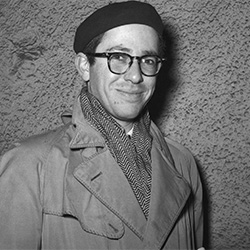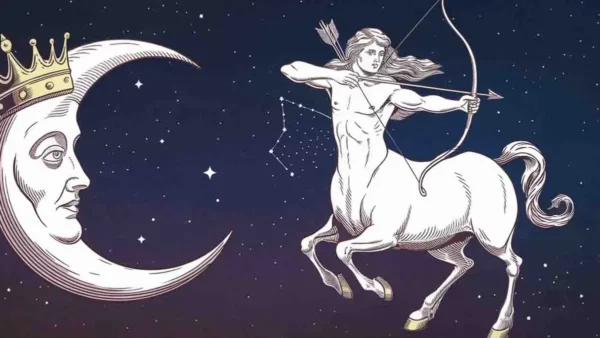
UN TREN PUEDE OCULTAR A OTRO
Traducción: J.S.B.
(letrero en un cruce de ferrocarril en Kenia)
En un poema, un verso puede ocultar otro verso,
como en un cruce, un tren puede ocultar a otro tren.
Es decir, si estás esperando para cruzar
Las vías, espera un momento al menos
Después de que el primer tren pasó. Y así, cuando leas,
Espera antes de leer la siguiente línea—
Entonces es seguro seguir leyendo.
En una familia, una hermana puede ocultar a otra,
Así que cuando la visitas, es mejor visualizarlas a todas,
De lo contrario al venir por una podrías amar a otra.
Un padre o un hermano pueden ocultar al hombre,
Si eres una mujer, a quien esperabas para amar.
Así, siempre delante de una cosa hay otra cosa.
Palabras que están delante de los objetos, sentimientos e ideas.
Un deseo puede ocultar otro. Y la reputación de una persona puede ocultar
La reputación de otra. Un perro puede ocultar a otro
En el patio, y si logras huir del primero no estás necesariamente a salvo;
Una violeta puede ocultar otra y a un montón de violetas más, y en la Appia
Antica, una tumba
puede ocultar múltiples tumbas. En el amor, un reproche puede ocultar otro,
Una pequeña queja puede ocultar una enorme.
Una injusticia puede ocultar otra—un dictador puede ocultar a otro,
Un uniforme rojo punzó otro, y otro, y así toda una columna. Un ducha
Puede ocultar otra ducha
Como cuando, después de ducharte, caminás bajo la lluvia.
Una idea puede ocultar otra: “La vida es simple”
Oculta “La vida es increíblemente compleja”, como en la prosa de Gertrude Stein,
Una oración oculta otra y a la vez es otra en sí misma. Y en el laboratorio,
Una invención puede ocultar otra invención,
Una atardecer puede ocultar otro, una sombra, un nido de sombras.
Una rojo oscuro, o una azul, o una púrpura —este es un cuadro
De alguien que aprendió de Matisse. Uno espera en las vías hasta que pasen
Esos dobles ocultos o, a veces, espejismos. O gemelos idénticos
Que pueden ocultar al otro. ¡Y puede que hayan otros más ahí! El obstetra
Observa la cuenca del Var. Solíamos vivir allí, mi esposa y yo, pero
Una vida ocultaba otra vida. Y ahora ella se fue y yo sigo aquí.
Una madre carismática oculta una hija apática. Y la hija oculta
Su propia hija carismática a su vez. Están en una
Estación de tren y la hija sostiene una bolsa,
Más grande que la bolsa de su madre, y perfectamente oculta.
Al ofrecerse a cargar la bolsa de la hija uno se ve a sí mismo de frente con la
de la madre
Y tiene que cargar esa también. Así, un mochilero
Puede ocultar deliberadamente a otro y una taza de café
A otra, hasta que uno queda sobre excitado. Un amor puede ocultar otro amor
O el mismo amor
Como cuando “Te amo” de repente suena falso y uno descubre
Que el amor verdadero persiste detrás, como cuando “Estoy lleno de dudas”
Oculta “Estoy seguro de algo y es eso”.
Y un sueño puede ocultar otro como es bien sabido, siempre, también. En el
Jardín del Edén
Adán y Eva pueden ocultar a los Adán y Eva verdaderos.
Jerusalén puede ocultar otra Jerusalén.
Cuando arribes a algo, detente y déjalo pasar
Así puedes ver qué otra cosa hay ahí. En casa, donde sea,
Las vías interiores también plantean peligros: un recuerdo
Sin duda oculta otro, porque de eso se trata la memoria,
La eterna sucesión inversa de entidades contempladas. Leyendo
A Sentimental Journey, observa alrededor
cuando termines, busca Tristram Shandy, para ver
Si está por ahí, debería resultar, más fuerte
Y más profundo y hasta entonces oculto como la Santa Maria Maggiore
puede estar oculta por iglesias similares dentro de Roma. Una vereda
Puede ocultar otra, como cuando duermes en una, y
Una canción puede ocultar otra canción; un estruendo en el piso de arriba
Oculta un redoble de tambores. Un amigo puede ocultar a otro, te sientas al
pie de un árbol
Con uno, y cuando te levantas para irte es otro
Con quien habrías preferido hablar todo el tiempo. Un maestro,
Un médico, un éxtasis, una enfermedad, una mujer, un hombre
Pueden ocultar a otro. Espera a que pase el primero.
Piensas ahora es seguro cruzar y te embiste lo que venía detrás. Esto
Puede ser importante
Esperar al menos un momento para ver qué hay ahí realmente.
ONE TRAIN MAY HIDE ANOTHER
Kenneth Koch
(sign at a railroad crossing in Kenya)
In a poem, one line may hide another line,
As at a crossing, one train may hide another train.
That is, if you are waiting to cross
The tracks, wait to do it for one moment at
Least after the first train is gone. And so when you read
Wait until you have read the next line—
Then it is safe to go on reading.
In a family one sister may conceal another,
So, when you are courting, it’s best to have them all in view
Otherwise in coming to find one you may love another.
One father or one brother may hide the man,
If you are a woman, whom you have been waiting to love.
So always standing in front of something the other
As words stand in front of objects, feelings, and ideas.
One wish may hide another. And one person’s reputation may hide
The reputation of another. One dog may conceal another
On a lawn, so if you escape the first one you’re not necessarily safe;
One lilac may hide another and then a lot of lilacs and on the Appia
Antica one tomb
May hide a number of other tombs. In love, one reproach may hide another,
One small complaint may hide a great one.
One injustice may hide another—one colonial may hide another,
One blaring red uniform another, and another, a whole column. One bath
may hide another bath
As when, after bathing, one walks out into the rain.
One idea may hide another: Life is simple
Hide Life is incredibly complex, as in the prose of Gertrude Stein
One sentence hides another and is another as well. And in the laboratory
One invention may hide another invention,
One evening may hide another, one shadow, a nest of shadows.
One dark red, or one blue, or one purple—this is a painting
By someone after Matisse. One waits at the tracks until they pass,
These hidden doubles or, sometimes, likenesses. One identical twin
May hide the other. And there may be even more in there! The obstetrician
Gazes at the Valley of the Var. We used to live there, my wife and I, but
One life hid another life. And now she is gone and I am here.
A vivacious mother hides a gawky daughter. The daughter hides
Her own vivacious daughter in turn. They are in
A railway station and the daughter is holding a bag
Bigger than her mother’s bag and successfully hides it.
In offering to pick up the daughter’s bag one finds oneself confronted by
the mother’s
And has to carry that one, too. So one hitchhiker
May deliberately hide another and one cup of coffee
Another, too, until one is over-excited. One love may hide another love
or the same love
As when “I love you” suddenly rings false and one discovers
The better love lingering behind, as when “I’m full of doubts”
Hides “I’m certain about something and it is that”
And one dream may hide another as is well known, always, too. In the
Garden of Eden
Adam and Eve may hide the real Adam and Eve.
Jerusalem may hide another Jerusalem.
When you come to something, stop to let it pass
So you can see what else is there. At home, no matter where,
Internal tracks pose dangers, too: one memory
Certainly hides another, that being what memory is all about,
The eternal reverse succession of contemplated entities. Reading
A Sentimental Journey look around
When you have finished, for Tristram Shandy, to see
If it is standing there, it should be, stronger
And more profound and theretofore hidden as Santa Maria Maggiore
May be hidden by similar churches inside Rome. One sidewalk
May hide another, as when you’re asleep there, and
One song hide another song; a pounding upstairs
Hide the beating of drums. One friend may hide another, you sit at the
foot of a tree
With one and when you get up to leave there is another
Whom you’d have preferred to talk to all along. One teacher,
One doctor, one ecstasy, one illness, one woman, one man
May hide another. Pause to let the first one pass.
You think, Now it is safe to cross and you are hit by the next one. It
can be important
To have waited at least a moment to see what was already there.
SOBRE EL AUTOR:
 KENNETH KOCH Nació en Cincinnati el 27 de febrero de 1925. Estudió en la Universidad de Harvard, donde obtuvo una licenciatura en artes, y luego asistió a la Universidad de Columbia para su doctorado. Cuando era joven, Koch se hizo conocido por su asociación con la Escuela de Nueva York de poesía.
KENNETH KOCH Nació en Cincinnati el 27 de febrero de 1925. Estudió en la Universidad de Harvard, donde obtuvo una licenciatura en artes, y luego asistió a la Universidad de Columbia para su doctorado. Cuando era joven, Koch se hizo conocido por su asociación con la Escuela de Nueva York de poesía.
La asociación de Koch con la Escuela de Nueva York funcionó, en efecto, como un período de aprendizaje. Muchos críticos encontraron sus primeras obras oscuras o difíciles, como Poems (Tibor de Nagy Gallery, 1953) y el poema épico Ko, or A Season on Earth (Grove Press, 1959). Sin embargo, destacaron en sus escritos posteriores una mayor claridad, lirismo y humor, como en The Art of Love (Random House, 1975), que fue elogiado por su gracia y sentido del humor.
Sus otras colecciones de poesía incluyen New Addresses (Alfred A. Knopf, 2000), ganadora del Premio de Poesía Phi Beta Kappa y finalista del Premio Nacional del Libro; Straits (Alfred A. Knopf, 1998); One Train y On the Great Atlantic Rainway, Selected Poems 1950–1988, ambos publicados por Knopf en 1994 y que juntos le valieron el Premio Bollingen en 1995; Seasons of the Earth (Penguin, 1987); On the Edge (Viking Penguin, 1986); Days and Nights (Random House, 1982); The Burning Mystery of Anna in 1951 (Random House, 1979); The Duplications (Random House, 1977); The Pleasures of Peace: And Other Poems (Grove Press, 1969); When the Sun Tries to Go On (Black Sparrow Press, 1969), ilustrado por Larry Rivers; y Thank You, and Other Poems (Grove Press, 1962).
Entre sus numerosos premios y reconocimientos se encuentran el Premio Nacional de Poesía Rebekah Johnson Bobbitt, otorgado por la Biblioteca del Congreso en 1996, así como premios de la Academia Estadounidense de Artes y Letras, y becas de las fundaciones Fulbright, Guggenheim e Ingram-Merrill. En 1996, fue nombrado miembro de la Academia Estadounidense de Artes y Letras.
Kenneth Koch vivió en la ciudad de Nueva York, donde fue profesor de inglés en la Universidad de Columbia. Koch falleció el 6 de julio de 2002, de leucemia.
Poema extraído de One Train, editado por Alfred A. Knopf, 1994. Copyright © 1994 by Kenneth Koch.





Sé el primero en comentar